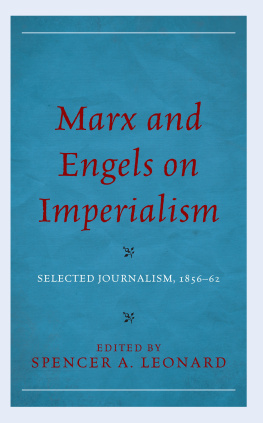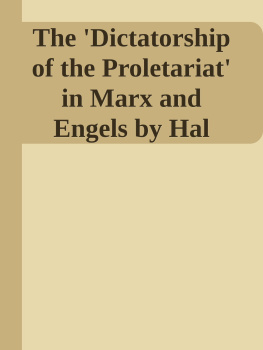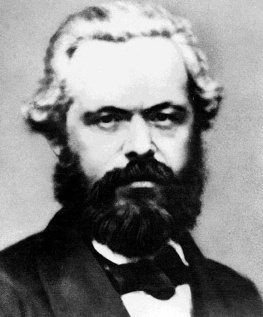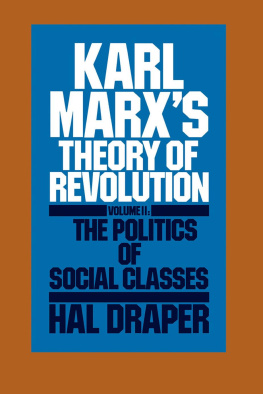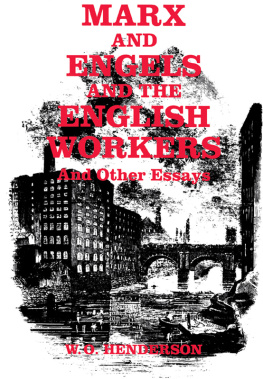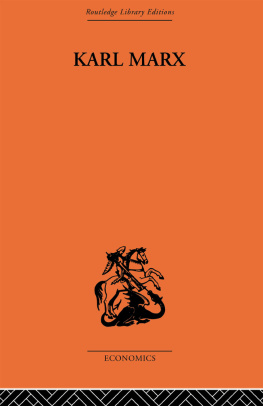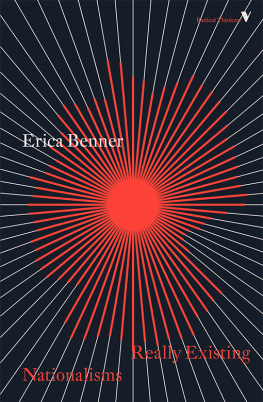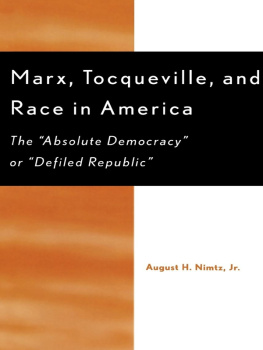Engels - In the Case of Brentano vs. Marx: Regarding Alleged Faslifications of Quotation
Here you can read online Engels - In the Case of Brentano vs. Marx: Regarding Alleged Faslifications of Quotation full text of the book (entire story) in english for free. Download pdf and epub, get meaning, cover and reviews about this ebook. publisher: Marxists Internet Archive, genre: Science. Description of the work, (preface) as well as reviews are available. Best literature library LitArk.com created for fans of good reading and offers a wide selection of genres:
Romance novel
Science fiction
Adventure
Detective
Science
History
Home and family
Prose
Art
Politics
Computer
Non-fiction
Religion
Business
Children
Humor
Choose a favorite category and find really read worthwhile books. Enjoy immersion in the world of imagination, feel the emotions of the characters or learn something new for yourself, make an fascinating discovery.

In the Case of Brentano vs. Marx: Regarding Alleged Faslifications of Quotation: summary, description and annotation
We offer to read an annotation, description, summary or preface (depends on what the author of the book "In the Case of Brentano vs. Marx: Regarding Alleged Faslifications of Quotation" wrote himself). If you haven't found the necessary information about the book — write in the comments, we will try to find it.
In the Case of Brentano vs. Marx: Regarding Alleged Faslifications of Quotation — read online for free the complete book (whole text) full work
Below is the text of the book, divided by pages. System saving the place of the last page read, allows you to conveniently read the book "In the Case of Brentano vs. Marx: Regarding Alleged Faslifications of Quotation" online for free, without having to search again every time where you left off. Put a bookmark, and you can go to the page where you finished reading at any time.
Font size:
Interval:
Bookmark:
In the Case of Brentano vs. Marx
Regarding Alleged Falsifications of Quotation
The Story and Documents
Written : in December 1890 - February 1891;
First published : as a pamphlet in: F. Engels, In Sachen Brentano contra Marx wegem angeblicher Zitatsflschung. , Geschichtserzhlung und Dokumente , Hamburg, 1891;
Translated : by John Peet;
Transcribed : by .
Ebook by : Eleanor
- Contents
- Documents
I. THE INCRIMINATED QUOTATIONS
2.
II. BRENTANO AND MARX
4.
5.
6.
7.
III. SEDLEY TAYLOR AND ELEANOR MARX
9.
10.
11.
IV. ENGELS AND BRENTANO
13.
14.
15.
16.
17.
- Preface
In my Preface to the fourth edition of the first volume of Marx's Capital found myself obliged to return to a polemic against Marx, initiated by Anonymous in the Berlin Concordia in 1872, and taken up again by Mr. Sedley Taylor of Cambridge in The Times in 1883. Anonymous, revealed by Mr. Taylor as Mr. Lujo Brentano, had accused Marx of falsifying a quotation. The short report on the affair which I gave in my Preface (it is printed amongst the attached ), certainly was not intended to be pleasant to Mr. Brentano; nothing was more natural than that he should answer me. And this took place in a pamphlet: Meine Polemik mit Karl Marx. Zugleich em Beitrag zur Frage des Fortschritts der Arbeiterkiasse und seiner Ursachen. Von Lujo Brentano, Berlin, Walther & Apolant, 1890.
This pamphlet gives us too much and too little. Too much, because it "also" gives us at length Mr. Brentano's views on "the advance of the working class and its causes". These views have absolutely nothing to do with the point at issue. I remark only this: Mr. Brentano's constantly repeated declaration that labour protection legislation and trade association organisations are fitted to improve the condition of the working class is by no means his own discovery. From the Condition of the Working Class in England and The Poverty of Philosophy to Capital and down to my most recent writings, Marx and I have said this a hundred times, though with very sharp reservations. Firstly, the favourable effects of the resisting trade associations are confined to periods of average and brisk business; in periods of stagnation and crisis they regularly fail; Mr. Brentano's claim that they "are capable of paralysing the fateful effects of the reserve army" is ridiculous boasting. And secondly ignoring other less important reservations -- neither the protection legislation nor the resistance of the trade associations removes the main thing which needs abolishing: Capitalist relations, which constantly reproduce the contradiction between the Capitalist class and the class of wage labourers. The mass of wage labourers remain condemned to life-long wage labour; the gap between them and the Capitalists becomes ever deeper and wider the more modern large-scale industry takes over all branches of production. But since Mr. Brentano would gladly convert wage-slaves into contented wage-slaves, he must hugely exaggerate the advantageous effects of labour protection, the resistance of trade associations, social piecemeal legislation, etc.; and as we are able to confront these exaggerations with the simple facts -- hence his fury.
The pamphlet in question gives too little, since it gives, of the documents in the polemic, only the items exchanged between Mr. Brentano and Marx, and not those which have appeared since with regard to this question. So in order to place the reader in a position to form an overall judgement, I give, in the appendix: 1. the incriminated passages from the Inaugural Address of the General Council of the International and from Capital ; 2. the polemic between Mr. Brentano and Marx; 3. that between Mr. Sedley Taylor and Eleanor Marx; 4. my Preface to the 4th edition of Capital and Mr. Brentano's reply to it; and 5. passages relevant to Gladstone's letters to Mr. Brentano. It goes without saying that I thereby omit all those passages of Brentano's argument which do not touch upon the question of falsification of quotation, but only constitute his "contribution to the advance", etc.
- I
In No. 10 of the Berlin Concordia , March 7, 1872, there was a fierce anonymous attack upon Marx as the author of the Inaugural Address of the General Council of the International in 1864. In this Address, it was stated, Marx had falsified a quotation from the budget speech made by Gladstone, at that time English Chancellor of the Exchequer, on April 16, 1863.
The passage from the Inaugural Address is printed in the appendix, . In the latter, the charge is formulated as follows:
"What is the relationship between this speech and the quotation by Marx? Gladstone first makes the point that there has undoubtedly been a colossal increase in the income of the country. This is proved for him by the income tax. But income tax takes notice only of incomes of 150 pounds sterling and over. Persons with lower incomes pay no income tax in England. The fact that Gladstone mentions this so that his yardstick can be properly appreciated is utilited by Marx to have Gladstone say: 'This intoxicating augmentation of wealth and power is entirely confined to classes of property.' Yet this sentence is nowhere to be found in Gladstone's speech. It says quite the opposite. Marx has added the sentence lyingly. both in form and in content! "
This is the charge and, let it be noted, the only charge, that Anonymous, who has now admitted he is called Lujo Brentano, makes against Marx.
No. 10 of the Concordia was sent to Marx from Germany in May 1872. The copy still in my possession today bears the inscription "Organ of the German Manufacturers' Association". Marx, who had never heard of this sheet, assumed the author to be a scribbling manufacturer, and dealt with him accordingly.
Marx demonstrated in his reply in the Volksstaat ( ) that the sentence had not only been quoted in the Same way by Professor Beesly in 1870 in The Fortnightly Review , but also before the publication of the Inaugural Address in [H. Roy,] The Theory of the Exchanges , London, 1864; and finally that the report in The Times on April 17, 1863 also contained the sentence, in form and in content, as he had quoted it:
"The augmentation I have described" (namely as "this intoxicating augmentation of wealth and power") "is an augmentation entirely confined to classes of property."
If this passage, a passage which is certainly compromising in the mouth of an English Chancellor of the Exchequer, is not to be found in Hansard, this is simply because Mr. Gladstone was clever enough to get rid of it, in accordance with traditional English parliamentary practice.
In any case, proof was given here that the sentence allegedly lyingly added is to be found verbatim in The Times of April 17, 1863 in its report of the speech delivered by Mr. Gladstone the evening before. And The Times was a Gladstonian organ at that time.
And what is the reply now from Mr. "Modesty" Brentano? ( Concordia , July 4, 1872, .)
With an impertinence he would never have dared under his own name, he repeats the charge that Marx lyingly added the sentence: this charge, he adds, is
"serious, and combined with the convincing evidence provided, absolutely devastating".
The evidence was nothing but the passage in Hansard in which the sentence is missing. It could thus at the most be "devastating" for this selfsame ill-fated sentence, which appeared in The Times and not in Hansard.
But this victorious crowing was only intended to help negotiate this same unpleasant fact that the "lyingly added" sentence had been confirmed as authentic by the
Next pageFont size:
Interval:
Bookmark:
Similar books «In the Case of Brentano vs. Marx: Regarding Alleged Faslifications of Quotation»
Look at similar books to In the Case of Brentano vs. Marx: Regarding Alleged Faslifications of Quotation. We have selected literature similar in name and meaning in the hope of providing readers with more options to find new, interesting, not yet read works.
Discussion, reviews of the book In the Case of Brentano vs. Marx: Regarding Alleged Faslifications of Quotation and just readers' own opinions. Leave your comments, write what you think about the work, its meaning or the main characters. Specify what exactly you liked and what you didn't like, and why you think so.


